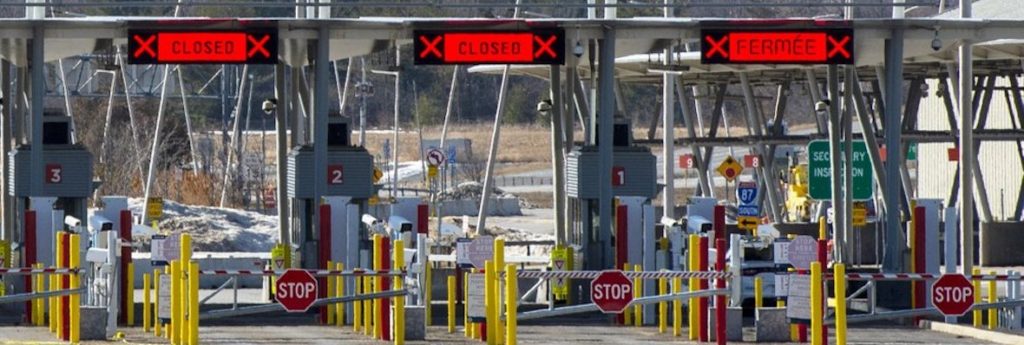The United States and Canada have agreed to temporarily close their shared border to nonessential travel due to the coronavirus pandemic. Prime Minister Justin Trudeau said travellers will no longer be permitted to cross the border for recreation or tourism, but that essential travel will continue.
“It is critical that we preserve supply chains between both countries,” Trudeau said. “These supply chains ensure that food, fuel and life-saving medicines reach people on both sides of the border.”
Trudeau made his comments in front of his residence where he is self-isolating after his wife tested positive for the virus.
Truck drivers and Canadian snowbirds, who live in the US for part of the year and are returning to Canada, are among those exempted. Completely closing the border would cause severe damage to two economies so closely integrated. Much of Canada’s food supply comes from or via the US, and 98 percent of its oil exports go to the US
Canada relies on the US for 75 percent of its exports and about 18% of American exports go to Canada.
The situation at Canada’s border came into focus Monday when Trudeau said that he would close the country’s borders to anyone who was not a Canadian citizen, an American or a permanent resident. Even then, those people are required to self-isolate for 14 days on arrival.
Canadian Deputy Prime Minister Chrystia Freeland said the border is vital to the daily life to people on both sides.
“Nearly 200,000 people cross that border every day, and that border and that traffic that goes across that border is literally a lifeline for both the Canadians and the Americans on both sides of that border, ″ Freeland said.
But many in Canada criticized the decision to give Americans an exemption, including British Columbia Health Minister Adrian Dix, citing the surge in cases in neighbouring Washington state.
Robert Bothwell, a professor of Canadian history and international relations at the University of Toronto, said the government-to-government accord merely ratifies what is already in place.
“Tourism in the age of the coronavirus is a contradiction in terms,” Bothwell said. “And no Canadian in his or her right mind would want to be caught with the virus on the US side of the border, given the predatory US medical pricing system. Actually, the insurance companies have already taken care of the problem. Many of us have received notices that they will not pay for virus treatment south of the border.”
For most people, the coronavirus causes only mild or moderate symptoms, such as fever and cough. For some, especially older adults and people with existing health problems, it can cause more severe illness, including pneumonia. The vast majority of people recover from the new virus. According to the World Health Organization, people with mild illness recover in about two weeks while those with more severe illness may take three weeks to six weeks to recover.

